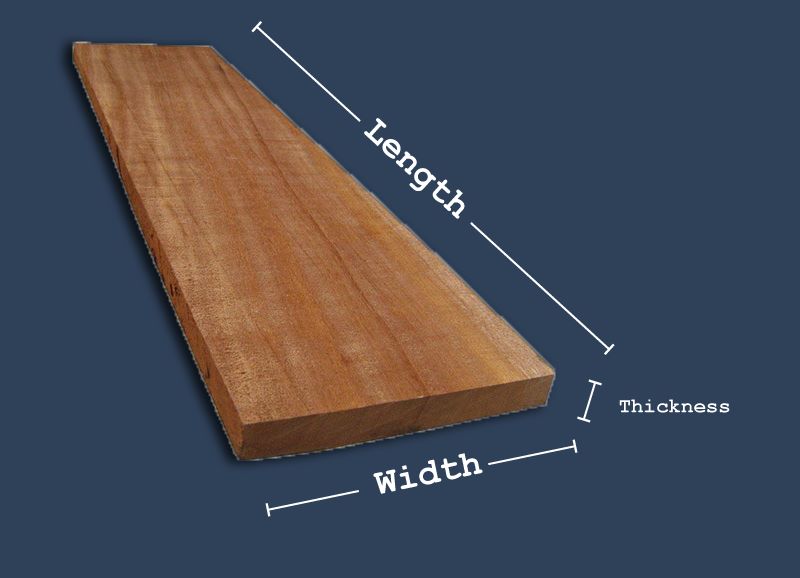Square Foot Calculator For Flooring/Wallboard
Enter your desired width and length in feet. The tool will then estimate the square footage. It will also determine the waste value and then give you the total result.
Ready to bring your vision to life? Take the first step towards your next project by securing your free quote today.
Square Foot Lumber Calculator: Definition
This square foot lumber calculator can help you quickly estimate how much hardwood timber you’ll need. If you’re not sure how to calculate board feet or what a board foot is, keep scrolling for more information. Alternatively, just enter the measurements of a piece of wood into our lumber calculator!
Square Foot vs Board Foot
Square footage, often referred to as “square feet” (sq ft), is a unit of measurement commonly used to estimate an area’s size. It is derived from assessments taken in feet and is used to calculate spaces for industrial, commercial, and residential projects. The square foot lumber calculator does not include thickness or volume; it only includes the length and width of an area. On the other hand, a board foot is a unit of measure used in the lumber industry to calculate the total volume of wood in a piece of lumber. This unit takes both thickness and width into account. Generally speaking, board foot is used to calculate raw material, while square feet is used to calculate finished products.
The two measurements are similar but not interchangeable, largely because they are assessing different things—area versus volume—and use different units of measurement—feet versus inches. An easy way to remember this is that square footage measures area while board footage measures volume; one happens over two dimensions whereas the other occurs through three dimensions.
Due to this distinction between two-dimensional and three-dimensional space, understanding how each measurement works can be essential when planning certain projects or purchasing certain materials, such as flooring or furniture, which may require careful calculations involving both square footage and board foot measurements depending on what needs to be done with them.
For example, someone who needs carpet for their living room might need to know how much carpet they need in terms of square footage, while someone remodeling their kitchen cabinets could get away with using just board-foot estimates since they wouldn’t need as precise calculations since cabinet sizes are typically standard regardless of any discrepancies related to thickness or width variances due to minor manufacturing defects, etc. This is why it is crucial to use a valid and precise square foot lumber calculator or any calculator for flooring or wallboard of the same type. Learn more about other similar tools here.
How do I calculate the square footage of a space?
An easy task that only takes basic math skills to complete, determining the square footage of a given space may be done in a few simple steps. You will need to know the length and width of an area in feet in order to do the calculation necessary to determine it. When these two dimensions are multiplied together, you will have the total square footage of the room. For instance, a room that is 10 feet long and 12 feet wide would have a total square footage of 120 sq ft because of its dimensions.
Square footage = Length (feet) × Width (feet)
Using the square foot lumber calculator can be incredibly useful for various tasks, such as building construction or interior design planning. Accurately calculating it before beginning any project can help save time and money in the long run by making sure that the materials ordered are exactly what is needed for a certain space and nothing more or less than what is required. Moreover, having accurate measurements on hand can make it easier to estimate labor costs associated with projects such as renovation or installation work.
PS: In any project related to the wood industry, there is always waste to consider when estimating the square footage of an area. So in order to compensate for that, we always add 10% to the total of the calculated assessment.
Total measurement = square footage × 110% (10% for waste)
For example, a space that has 120 square feet will have 12 square feet of waste, according to the flooring waste calculator. So the total measurement will equal 132.
In addition, you can always estimate the square footage using inches as well, and then divide by 144 to convert the result into feet. For example, a room with a wall that is 8’ 7” high and 23’ 4” long, would convert like this: 8×12+7 (103 inches) x 23×12+4 (280)= 28,840 inches total. Divide this number by 144 (1 square foot in inches) and you get 200 square feet. Add your 10% for waste and you would need 220sf for your wall.
Fortunately, you do not have to go through all of this work since you can just utilize the square foot lumber calculator tool that we provide here at Old World Timber.
Square Foot Lumber Calculator: Technical Terms
Board Foot: a unit of measurement used to figure out how much volume of wood is in a piece of lumber.
Diameter: The diameter of a piece of wood is used to help figure out its size, strength, and stability. It measures how far or wide a round log or tree trunk is from one side to the other.
Inch: An inch is a unit of length in the imperial and US customary systems of measurement. It is equal to 1/12 of a foot, or 2.54 centimeters. It is also commonly used in measuring the size of objects, such as paper sizes, flowers or other small objects. The abbreviation for inch is “in” or the symbol ″ (a double prime).
Length: Length is how the wood industry measures the distance between two points, usually along the longest axis of a piece of lumber. It’s used to figure out the size and amount of material needed for construction and other woodworking projects.
Square Foot: A unit of measure used to describe an area. It is typically applied to buildings, land, and other physical areas. Equivalently, it can also be thought of as containing 144 square inches. When measuring the size of objects, such as furniture, carpets, or tiles, the measurements are often specified in terms of their coverage per square foot. This helps give an indication of the amount that would fit into an area of a given size. It is also the primary unit used in the square foot lumber calculator tool.
Thickness: When seen from a two-dimensional viewpoint, thickness is the measurement of an object’s depth. It is also the quantity of material that separates two surfaces, such as the distance between the insides of two walls of a structure. When discussing thickness, it usually refers to something that can be measured using standard units, including feet (ft), inches (in), or any other units of linear measurement. Thicker objects are usually heavier and possess greater mass than thinner objects due to the presence of more material within them. By comparing the various thickness measurements available for a particular material type and application requirement, it becomes easier to choose the best option for any specific product, like reclaimed wood flooring.
Total measurement: The final result represents the calculated square footage plus a considerable amount of waste, which is usually 10%. This is the important metric, displayed by our square foot lumber calculator.
Volume: Volume is the amount or quantity of anything measured in three dimensions. It expresses how much space an object takes up and is frequently used to measure liquids, gasses, or solid objects. It is commonly stated in cups, pints, quarts, and gallons. It may also be determined by multiplying an entity’s length, width, and height. Understanding an object’s volume enables us to more thoroughly comprehend its qualities and compare it to other items.
Waste: Waste constitutes the amount unused, unwanted or unneeded of materials or finished products in any project related to the wood industry. In this particular case, this term describes 10% of the total measurement in the square foot lumber calculator for flooring or paneling, in any project.
Width: Width is a metric of how wide an object, area, or subject is. It is the range from one border to the other, often expressed horizontally. In terms of area, width is the amount of distance across two perpendicular positions.
COMMERCIAL COLLABORATIONS














Trustindex verifies that the original source of the review is Google. Great place to workTrustindex verifies that the original source of the review is Google. Trustindex verifies that the original source of the review is Google. Helpful easy to work with and super friendly.Trustindex verifies that the original source of the review is Google. Such a wonderful company. The horse fence floors are beautiful and Adam was very helpful and easy to work with. (Picture is red and white oak, unfinished) Edited to add a finished picture. They’re gorgeous!Trustindex verifies that the original source of the review is Google. Trustindex verifies that the original source of the review is Google. Trustindex verifies that the original source of the review is Google. Trustindex verifies that the original source of the review is Google. Find the hard to find here
Frequently Asked Questions
A single board foot is one square foot of one-inch-thick wood. Board feet are calculated by multiplying length x width x thickness in inches by 144. If buying in bulk, just multiply the total number of board feet required by the price per board foot to get the total cost.
Determine the length and width of the area you’re dealing with in feet. Divide the length by the width to get the square feet. Here’s a basic wood calculator formula to get you started: Area in sq ft equals length (ft) x width (ft).
A room 10 feet wide by 10 feet long has a square footage of 100 square feet. Multiply the width (10 ft) by the length to get the square footage (10 ft).
There are 12 inches in a foot, so a square foot is equal to 12 x 12 squared inches. This means that there are 144 square inches in one sq ft. If you want to convert from feet to inches, you just need to multiply the number of feet by 12; likewise, if you want to convert from inches to feet, you need to divide the number of inches by 12.
Determine the length and width of the area you’re working with in feet. Divide the length by the width to get the sq ft. Here’s how to estimate using our square foot calculator for flooring : Area in square feet equals length (in feet) x breadth (in feet).
A square foot of spray foam insulation that is one inch thick is equal to one board foot. Board feet are measured in inches. As the standard method of measurement used in the industry, it takes into account both the total square footage of the area that will be sprayed and the desired amount of foam’s thickness in inches.
One oak board foot can weigh anything from 3.08 to 4.67 pounds (1.42 to 2.12 kilograms), but on average, one oak board foot weighs 3.875 pounds (1.77 kg)
A board foot is a volume metric equal to one square foot that is one inch thick. As a result, there will be 500 board feet in 500 square feet. A conversion tool or equation may be used to compute the number of board feet in different units.
The normal construction of a house with 2,000 square feet of living space requires roughly 16,000 board feet of timber and 6,000 sq ft of structural panels made of hardwood.
Because it is considered an unfinished area, the square footage of a house does not include the garage as one of its rooms. In order for a garage to be counted into the total square footage of a home, it must first be legally transformed into an additional living area.




